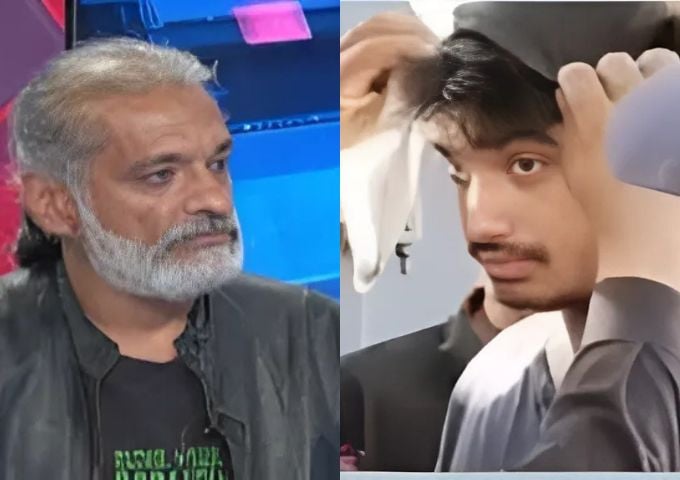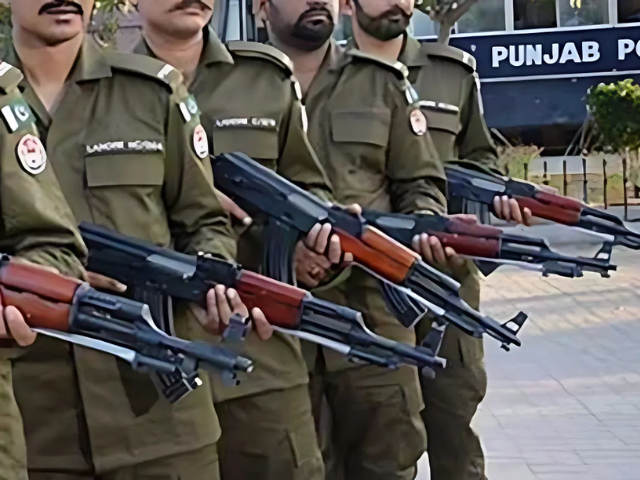
SHC recommends removal of ATC judge’s administrative powers
”
KARACHI: The Sindh High Court (SHC) has stripped an anti-terrorism court (ATC) judge of administrative powers over the denial to grant the police physical remand of Armaghan, the prime suspect in the Mustafa Amir murder case.
A two-member bench, headed by Justice Zafar Rajput, issued a detailed verdict on the matter.
According to the acting prosecutor general, the decision to strip the judge of his powers was made following allegations of record tampering.
The prosecution had filed four petitions against the ATC judge, arguing that he had rejected the request for the suspect’s physical remand at the initial level.
During the previous hearing, the ATC registrar submitted the case record to the SHC, and the current investigating officer informed the court that while police remand had initially been granted, the suspect was later sent to jail custody at 7pm earlier this month.
Justice Zafar observed that a physical remand had been altered to jail custody by striking out the original order.
The court, in its written order, stated that the court record indicated that the investigating officer had presented all evidence before the administrative judge of ATC I, however, he rejected the request for physical remand based on the suspect’s complaint of mistreatment.
It said that the suspect had also complained of police torture during his appearance in the SHC and the medical-legal report had also indicated marks on the suspect’s lower body, forehead, ear, and neck.
However, the report did not confirm whether these marks were caused by police torture, it added.
The verdict further said that the investigating officer had informed the SHC that the presiding judge of the ATC I made the police wait for three hours before verbally instructing the IO to conduct a medical examination of the suspect on the day they first presented the suspect for physical remand.
“The judge had the proper procedure available to grant a short-term remand of the suspect while ensuring a medical examination. The judge could have ordered the medical examination alongside the police remand. Action against the investigating officer could only have been taken if the medical report confirmed evidence of torture,” the verdict read.
It was further noted that magistrates and presiding judges were accountable to the high court in cases of procedural irregularities. The judge’s orders were not handwritten but were instead typed, it stated, adding that the presiding judge had initially ordered the suspect’s physical remand, but it was later changed to judicial custody using a corrector.
Moreover, the verdict also mentioned the acting prosecutor general’s remarks that the suspect’s father was present in the judge’s chamber at the time of the remand decision. It was also noted that none of the parties had requested the formation of a joint investigation team (JIT).
The verdict declared that the presiding judge did not have the authority to issue such orders. The judge’s decision to change police remand to judicial remand was deemed unlawful, and the ruling to form a JIT was considered an overreach of jurisdiction.
It may be noted that Armaghan had been arrested on February 8, during a raid at his residence in Karachi’s Defence Housing Authority (DHA), by the police’s Anti-Violent Crime Cell.
The encounter, which was a gunfight between the law enforcers and the suspect, highlighted the case of disappearance and murder of Mustafa, a BBA student, who had gone missing on January 6.
Besides Armaghan, another suspect named Sheraz alias Shavez, was also arrested during the raid.
After the arrests, the police presented both the suspects before the ATC I to seek their physical remand for interrogation. However, the court denied the police custody of the prime suspect, but remanded Sheraz into their custody.
The police had then approached the SHC for Armaghan’s custody, which referred the matter to ATC II for physical remand. Both the suspects are still in police custody following successive extensions of their remands.
The case
The case is linked to the alleged kidnapping and murder of a BBA student, Mustafa, who had gone missing last month.
The police arrested the suspects during the February 8 raid, however, Mustafa’s whereabouts couldn’t be traced until a week later when the authorities revealed that some charred human remains had been found in a car near the Hub checkpost days after the youngster’s disappearance.
The victim’s body had been buried by the Edhi Foundation following the discovery in January, but a court allowed its exhumation for identification and forensics. The initial report that surfaced earlier this week confirmed that the exhumed body was indeed Mustafa’s.
Both the suspects had, on different occasions, confessed to murdering the youngster and disposing off his body at the same place from where the burnt car and remains had been discovered.
”



